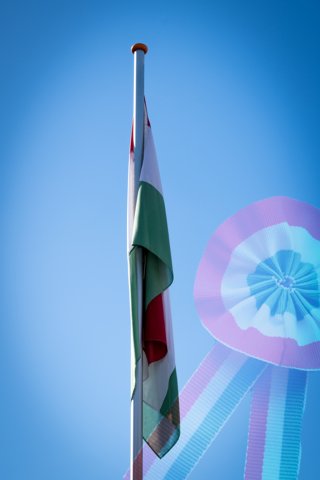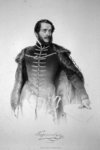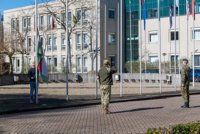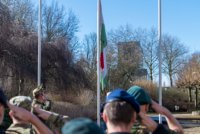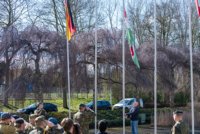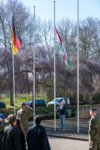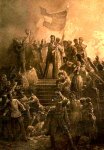Hungarian National Day has arrived at CCOE
With a small ceremony in front of the main building of the CCOE, the Senior National Representative of Hungary, Lieutenant Colonel Dr J.Fekete, commemorates the Hungarian National Day.
History/ Background
On March 15, 1848, a large crowd gathered in Pest, Hungary, to demand political and social reforms from the Habsburg Empire, which had ruled Hungary for centuries. The demonstrators, composed of students, intellectuals, and workers, drew up a list of demands known as the Twelve Points, calling for greater civil liberties, freedom of the press, and an independent Hungarian parliament. From the military side, the first few weeks were a disaster for Hungary, they lost many battles and had to withdraw their troops. Due to this, Lajos Kossuth, the interim government's prime minister, demanded the establishment of a new, regular army. Many people joined the Hungarian Defence Forces, and the fortune of war had been turned. After a series of severe Austrian defeats in 1849, the Austrian Empire came close to the brink of collapse. The young emperor Franz Joseph the 1st had to call for Russian help, and by October 1849, the war for independence was lost.The Austrian Empire never regained its former political and military strength, and in 1867 the Dual Monarchy of Austria-Hungary was established, granting the Kingdom of Hungary more autonomy than ever before during Habsburg rule. The heroes of that time can serve as excellent role models for today's youth, and the values they fought for are still very important today. Although the revolution ultimately failed, it had a substantial impact on Hungarian society and laid the groundwork for future struggles for independence and democracy. This period is also special for the HDF, because the War of Independence saw the establishment of the new regular Hungarian army, which is now celebrating its 175th anniversary. March 15th is now celebrated as a national holiday in Hungary, known as the Day of Hungarian Freedom.
Photos by A.Doehring/PAO CCOE

